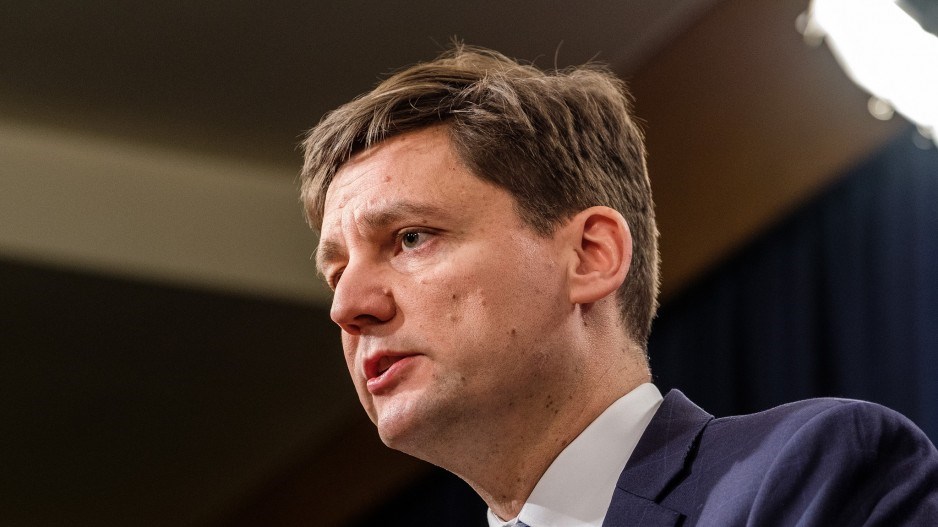From the moment he first raised the proposal more than 16 months ago, Premier David Eby has been slowly walking back his ideas over involuntary drug treatment.
That climbdown culminated Monday with the B.C. premier finally removing the option from the table and pivoting his full attention to a seamless addictions treatment model in Vancouver — that is fully voluntary.
“I don't think that it's right to say, OK, well the issue here is that we need to force more people into care, if you're not able to actually offer the care on a voluntary basis to the people who are ready to go,” Eby said, when I asked him for an update on his position.
“So this model aims to address the issue in a way that respects the individual's ability to make their own decisions, and for when they're ready, that the care will be ready for them.”
It’s a far cry from Eby’s comments last year, while running for the BC NDP leadership: “This policy of non-intervention is one that can’t continue,” he said Aug. 23, 2022.
“If we can prevent some deaths and intervene earlier to support people, so that they at least have a shot, I think we should do it.”
Since then, though, critics of forcing people into treatment against their will have caught the premier’s ear.
First Nations leaders say forcible confinement would disproportionality affect Indigenous people, who are already overrepresented in the crisis. The province’s chief coroner has flagged the risk it might scare people into not seeking help. Others have pointed out how forcibly detoxing someone lowers their drug tolerance and puts them at greater risk of overdosing if they are intent on using again when they are released.
Eby said last December he would consult with addictions experts on the idea. Very little has been said by his government since then. But the feedback was clearly not positive.
“I'm told by people who are experts in this area that one of the risks of involuntary holding of individuals, especially youth, is that when someone overdoses, their friends or they themselves are less likely to call an ambulance, less likely to call for help, and more likely to die,” Eby said Monday.
“The goal is to keep people alive so that they can get into treatment. So this model, I'm very hopeful will respond to the issue.”
The NDP is instead focused on expanding recovery, said Eby. It’s an area with much more public support than expanding safe supply, and one the NDP is playing catch-up on to the more ambitious policy proposals of the Opposition party, BC United.
“That way we get out of this discussion about voluntary and involuntary,” said Eby. “We get into a discussion of the care is ready and in fact life is a lot better for you if you stay in the hospital.”
Actually implementing treatment options and new beds, however, is proving an expensive and slow process for the NDP.
The new seamless care model at St. Paul’s Hospital in Vancouver was only made possible by a private donation of $20 million from the Diamond family, and even then it has eaten up almost 40 per cent of the operational money the government budgeted for new addictions beds over the next three years.
Six months after it was first announced, only 34 of the 95 new beds are open.
It’s not clear yet whether the St. Paul’s model is sustainable enough to transfer to other locations, though Eby pledged on Monday to do just that. The money will be there, he said. We’ll see if the premier can fully execute the pivot from involuntary to voluntary addictions treatment, and back it up with an actual seamless system across the province.
Rob Shaw has spent more than 15 years covering B.C. politics, now reporting for CHEK News and writing for Glacier Media. He is the co-author of the national bestselling book A Matter of Confidence, host of the weekly podcast Political Capital, and a regular guest on CBC Radio. [email protected]




